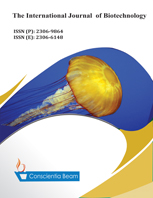Thermostable Xylanases of Microbial Origin: Recent Insights and Biotechnological Potential
Abstract
Xylanases are hydrolases which depolymerise the plant cell wall component-xylan, the second most abundant polysaccharide. They are mainly produced by microorganisms but can also be found in plants, marine algae, protozoans, crustaceans, insects, and snails. Because of their ability to break down xylan, these enzymes especially of microbial origin, have attracted more attention due to their potential role in pulping and bleaching processes, in food and feed industry, textile processes and organic waste treatment. Xylanases are more suitable in paper and pulp industry than lignin degrading enzymes. Owing to the increasing biotechnological importance of thermostable xylanases, many potential thermophilic and hyperthermophilic bacterial genera like Bacillus, Thermotoga, Streptomyces, Thermomyces, Pyrococcus and Sulfolobus and some fungal genera like Trichoderma, Aspergillus, Penicillum, Aureobasidium have been identified. As tolerance to higher pH and temperature are desirable properties of xylanase for effective use in pulp treatment, thermophillic organisms are of special interest as a source of novel thermostable xylanases. But for large scale production of xylanases, reduction of cost is still very challenging. This review encompasses the sources, classification, industrial and future prospects of xylanases with special reference to thermostable ones.

